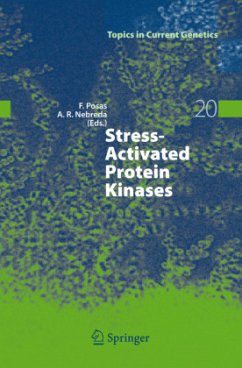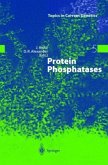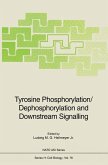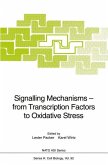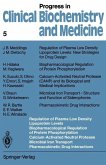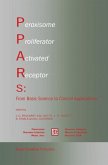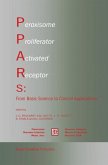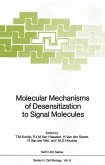To maximize the probability of survival, cells need to coordinate their intracellular activities in response to changes in the extracellular environment. MAP kinase cascades play an important role in the transduction of signals inside eukaryotic cells. In particular, stress stimuli result in the rapid activation of a highly conserved group of MAP kinases, known as SAPKs (Stress-Activated Protein Kinases). These kinases coordinate the generation of adaptive responses that are essential for cell survival, which include the modulation of several aspects of cell physiology from metabolism to gene expression.
In this book, leading researchers in the field discuss the state-of-the-art of many aspects of SAPK signalling in various systems from yeast to mammals. These include various chapters on regulatory mechanisms as well as the contribution of the SAPK signalling pathways to processes such as gene expression, metabolism, cell cycle regulation, immune responses and tumorigenesis.
In this book, leading researchers in the field discuss the state-of-the-art of many aspects of SAPK signalling in various systems from yeast to mammals. These include various chapters on regulatory mechanisms as well as the contribution of the SAPK signalling pathways to processes such as gene expression, metabolism, cell cycle regulation, immune responses and tumorigenesis.

